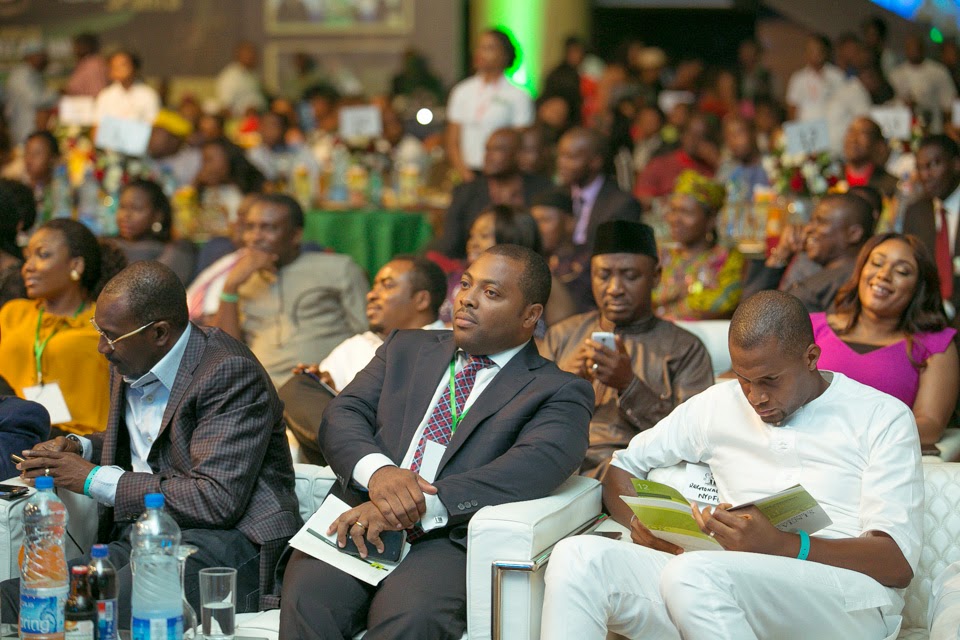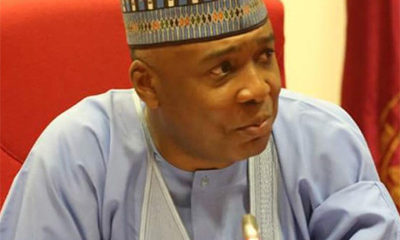Metro
Harnessing Youths’ Professionalism For Nigeria’s Development

Eniola Olayemi
Young people play a crucial role in the prospect for development and should be included in all national development plans and programmes. MAKINDE OLUWAROTIMI writes on how this can be done.
One of the greatest challenges facing governments and policymakers in Africa today is how to provide opportunities for the continent’s more than 200 million youth so that they can have decent lives and contribute to the economic development of their countries.
According to the United Nations, Africa’s population of 1.3 billion at 2019 is expected to double by 2050. Africa is the youngest continent in the world; – about 70 per cent of its population is 30 years of age or younger.
Undoubtedly, the challenges for youth that are central to Africa’s economic development are numerous and varied—they include employment, health and political participation. These issues differ among groups within countries (by gender, education level, ethnicity and health status), and across countries and regions. Conversely, the size, energy, enthusiasm, innovation and dynamism of youth are assets that can be harnessed for Africa’s development with appropriate policies that deal adequately with the issues facing them.
According to Mwangi Kimenyi, a senior fellow and the director of the Africa Growth Initiative at the Brookings Institution, “young persons could be a source of labour inputs as well as human capital in production, which would improve total factor productivity in a region of the world where capital formation is limited.”
He suggested that when employed, youth could be a reliable source of demand for the economy through their consumption activities.
In addition, the youth of Africa could be critical for the development of a new class of entrepreneurs that African countries need to prosper.
Furthermore, economic experts project that Africa has an opportunity to harness a “demographic dividend”: With the projection that most countries in Africa will have more working-age adults per child in 2030 than in 2019, there will be a large workforce supporting fewer children and the elderly. This trend would result in a lower dependency burden, freeing up resources for development.
According to Professor Kwabena Gyimah-Brempong, chair of the Department of Economics at the University of South Florida, there are several reasons why youth could become an integral part of Africa’s economic growth and development.
He suggested that first; they tend to be more educated than their older cohorts. Therefore, they can better absorb new technologies and ideas and adapt them to the African environment.
Second, they tend to take more risks than their older counterparts. Finally, they are more likely to challenge certain norms and sociopolitical processes that may be hindering economic development.
“The challenge to African policymakers is how to harness young people’s desire for change that has the potential to translate into positive outcomes,” he noted.
Indeed, the consequences of not fully developing and harnessing youth’s potential could be dire, including significant economic losses, armed conflict, and political and social upheaval and instability.
Youth are more likely to become frustrated because of legitimate grievances, including a lack of employment opportunities, low educational attainment, little participation in decision-making and low social mobility. In this volatile context, greedy and opportunistic politicians could even exploit these grievances by involving these frustrated youths in violent overthrows of legitimate governments—creating massive instabilities that could limit the economic growth of Africa’s countries.
In Nigeria, the youths make tremendous contributions to society at all levels as actors, players, partners and strategic catalysts for development. Yet, in spite of their valuable input to human development, youth contributions to the development process have for centuries remained unacknowledged by societies that favour adult aged person.
On the economic front, poverty, underemployment and unemployment have barred young people from committing their fresh energy and intellect to their own good as well as that of the society. The problem of unemployment and underemployment is compounded by the lack of access to affordable, functional and qualitative education and training that is oriented to local and global employment markets.
Doubtlessly, there is need to meaningfully engage young persons in all spheres of the Nigerian society. There should be opportunities for youth to be involved in planning or decision-making for activities whose impact extends beyond the youth participants themselves.
In this regard, the recent appointment of a 27-year-old lady, Hannatu Muhammad, among members of the Board of the Independent Corrupt Practices and other related offences Commission (ICPC) by President Mohammedu Buhari is commendable.
This is more gratifying as her appointment was in compliance with the provision of the ICPC Act, requiring a representative of the nation’s youths on the board of the anti-corruption agency. Youth participation is about creating an environment where youth work is in partnership with adults with mutual respect and understanding. Real youth participation involves recognising and nurturing the strengths, interests, and abilities of young people by providing real opportunities for youth to become involved in decisions that affect them both at the individual level and within systems that they are part of. Such participation moves beyond tokenism towards a process where youth are meaningfully involved in decisions affecting them and the larger society for sustainable development.
In terms of spheres of participation in national development, the UN General Assembly (UNDESA, 2004) defined youth participation as comprising four components: economic participation, relating to work and development; political participation, relating to local, national, regional, and international decision-making processes; social participation, relating to involvement in community activities; and cultural participation, relating to the arts, cultural values and expression. Youth participation envisaged by the PAN-African Youth Charter, African Union, aims at creating an environment for young people to be able to actively participate in all spheres of society.
It calls upon State Parties to the Charter to undertake several steps that ensure youth participation. These include; creating a quota system to ensure youth participation in parliament and other decision-making processes; creating youth focal points in government structures to ensure mainstreaming of youth issues; and giving priority to policies and programmes including youth advocacy and peer-to-peer programmes for marginalised youth, such as out-of-school and out-of-work youth, to offer them the opportunity and motivation to re-integrate into mainstream society.
Perhaps, this underscores the importance of such organisation as the Nigerian Young Professionals Forum (NYPF) – a non-governmental organisation composed of young professionals from different fields of human endeavours, coming together under a unified platform to achieve three major objectives of creating sustainable livelihood for young people, engendering purposeful leadership and social democratic inclusion and encouraging young people’s participation in governance and the economic process.
The NYPF unites and networks with 3 million young Nigerian professionals globally, cutting across 15 countries- the largest of such kind in any African country. As an organisation made up primarily of young, dynamic and upwardly mobile individuals, the NYPF intends to harness Nigeria’s economic, political and social resources using contemporary managerial and administrative techniques.
It also aims to support governments at all levels, as well as international organisations, in a bid to build a sustainable future for those seen as trustees and custodians of the future of Nigeria. After over five years of young engagement, the NYPF, in its recent anniversary gave out honourary awards and scholarships to several young and enterprising Nigerians.
Some of the beneficiaries of the awards were, governors Ifeanyi Okowa, Okezie Ikpeazu of Delta and Abia States, Imam Abdullahi Abubakar, the Imam of Nghar Village, Gashish district in Barkin Ladi, Plateau State, Senator Daisy Danjuma and other prominent Nigerians. All the award recipients, according to the organisers, were thoroughly considered and shortlisted in recognition of their meritorious service and varied roles, played by each, in support for nation building and advancement of democracy, development and good governance in Nigeria.
The chairman of NYPF, Moses Siasia, said that the forum, in the last five years, has been able to make a lot of milestone achievements like providing employment for 780 unemployed youths nationwide.
“In the past five years, we have made a lot of milestone achievements. We have been able to provide employment for 780 unemployed youths in various sectors of the nation like, marine, oil and gas sectors etc.
We have also given out several scholarships, both home and abroad.” “NYPF, has also produced 18 members of the house of assembly, and 72 members of state houses of assembly, all from different political parties. The organisation has emphasised the need to engage more youths in decision making processes for speedy development of the nation,” he said.
The organisation also gave out scholarships to winners of the first and second positions of an organised essay competition.
A full scholarship was given to Miss Akinyele Victory-Melody from Baptist High School, Jos, who won the first position, to any federal university of her choice. The executive director of Connected Development, Mr Hamzat Lawal, in a speech urged the government to collaborate with NYPF to achieve better and lasting developmental results in the country.
The NYPF hopes to provide the expertise and leadership in researching and achieving sustainable development and provide a platform for the development of young professionals in Nigeria by providing career enhancement. In alliance with others, it seeks to help shape a future that delivers and sustains efficient and equitable management of the region’s resources.








